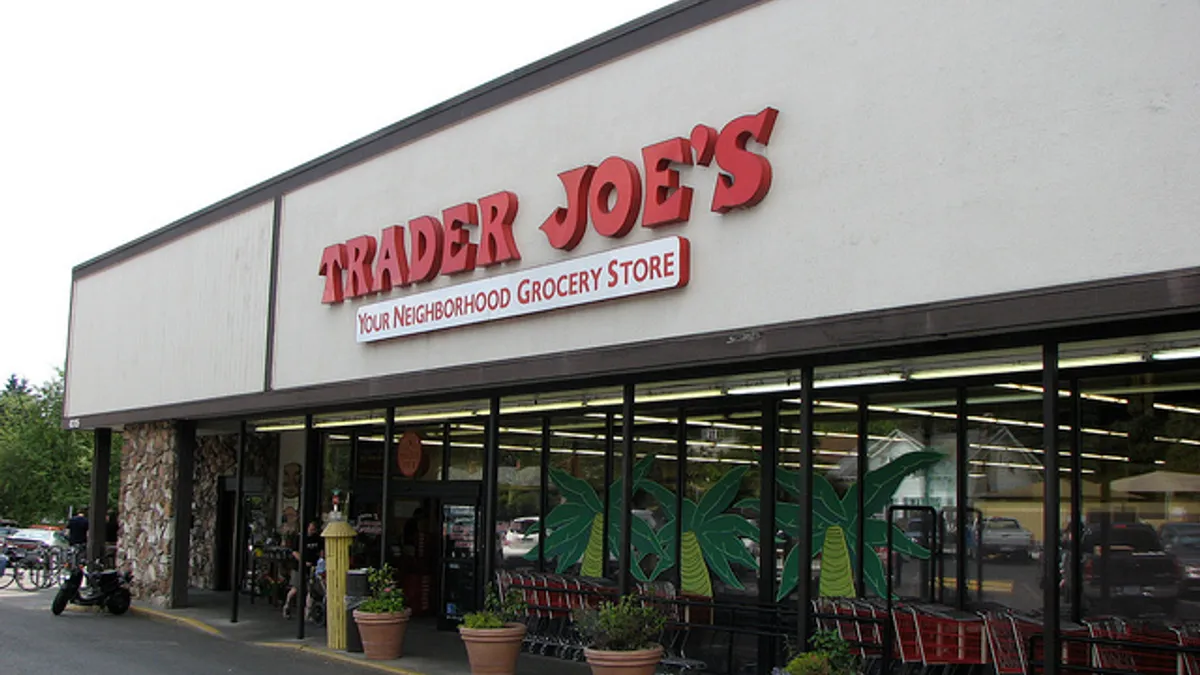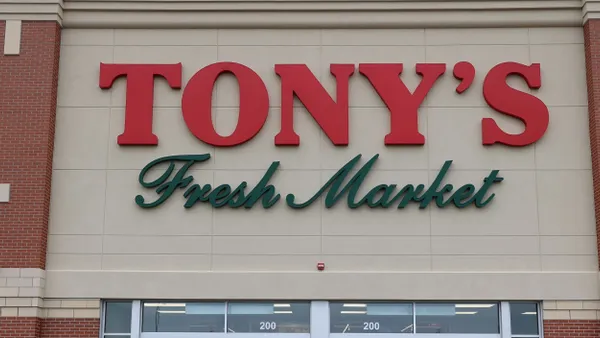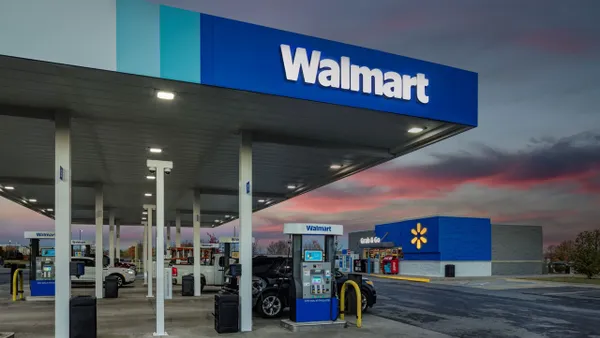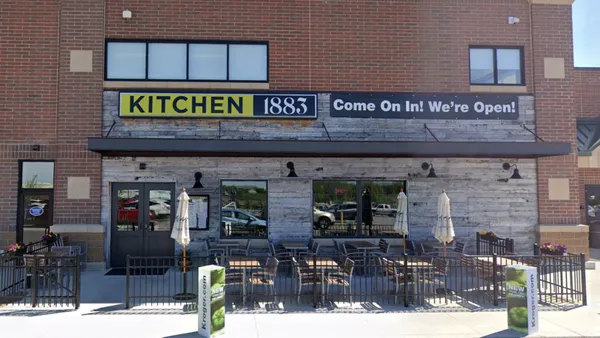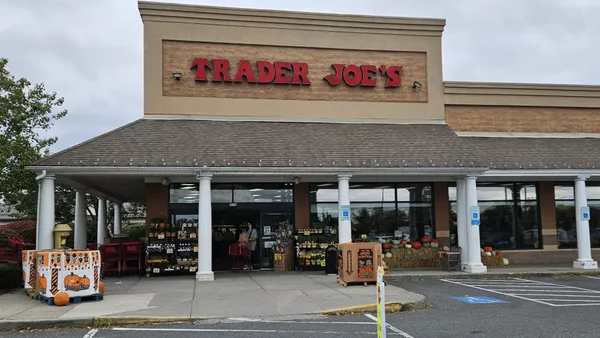Dive Brief:
- Trader Joe's has seen between zero and four positive COVID-19 cases among its employees at 83% of its 514 stores, the grocer announced Thursday. Less than one-quarter (24%) of the stores have not reported a single positive COVID-19 case.
- The grocery chain, which was sharply criticized in March and April for its handling of positive cases among its workforce, said 1,250 of its 53,000 total employees contracted COVID-19 between the onset of the pandemic and Oct. 31, a rate of approximately 2.4%. For employees who contracted the virus and quarantined, 95% have recovered and gone back to work, the grocer said.
- Two of its employees are suspected to have died from COVID-19 since the pandemic began, the press release confirmed.
Dive Insight:
In the early weeks of the novel coronavirus pandemic in the U.S., few grocers faced as much scrutiny as national chain Trader Joe’s. In late March, a coalition of Trader Joe’s employees — who were organizing for unionization — called for a consumer boycott of the chain over managers allegedly keeping some stores open despite positive cases among employees. The New York Times also reported that some managers were promoting an anti-union message and allegedly banning gloves and face masks in stores for a short period.
Trader Joe's current stated health and safety precautions assure that crew members are provided gloves and face masks, have plexiglass barriers at check stands and receive a $2 per hour additional "thank you" wage. The grocery chain has also reduced its hours and limited the number of customers allowed in stores.
During the pandemic, Trader Joe’s has shuttered some of its stores after employees tested positive, including several in the New York region in March. The grocer reportedly saw an outbreak of eight cases at a store in San Jose, California, in July.
Trader Joe’s store operations and format were initially not particularly conducive to quick adaptations to a pandemic environment. Employees work the entire store rather than being confined to a particular role or area. The stores are more compact and often located in densely populated areas.
Other companies in the grocery industry have also faced backlash regarding safety measures during the pandemic. Workers at both Amazon and Instacart went on strikes over safety concerns. Kroger announced bonus pay and the continuation of its expanded sick leave policy in the spring after being criticized for its policies.
In May, Costco saw people rally in support of its mask mandate for shoppers even as others protested the rule.
The positive COVID-19 case numbers, which Trader Joe's claims are lower among its employees than among the surrounding community as a whole, are dwarfed by those of larger retailers. Despite initially pushing back on calls to publish its aggregate case numbers, Amazon announced in early October that nearly 20,000 of its employees, including workers at Whole Foods Market, had tested or been presumed positive for the novel coronavirus.
Reliable data across the grocery industry is lacking, as many brands have not published their employee infection rates. Despite local pressure, Walmart and Target both refused to publish data on infections among its staff during a June spike of cases in Texas. In May, the Washington Post reported that employees at more than 30 supermarkets alleged the grocers hadn't disclosed coronavirus infection numbers and deaths, even internally to grocery store employees.


